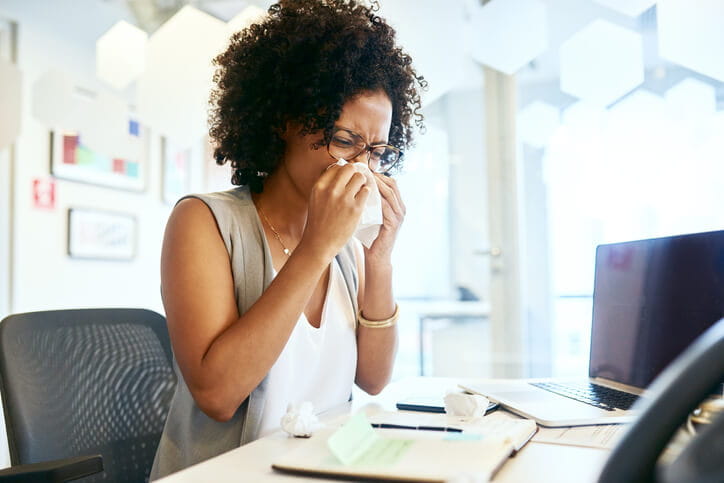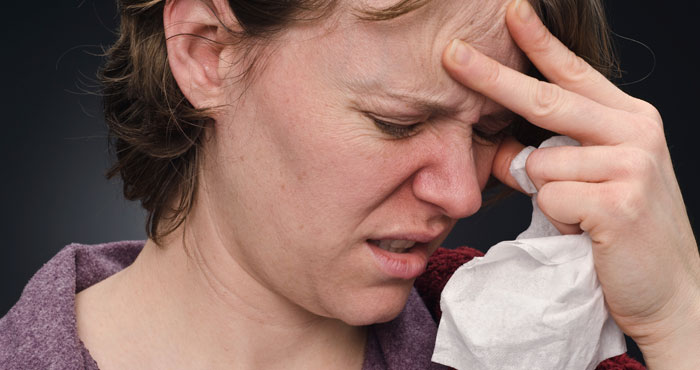Can Allergies Cause Migraines?

If you have respiratory or food allergies and you get migraine headaches, you may start to wonder if there’s a connection between these conditions. Research shows that there is. People with allergies are much more likely to get migraines.
Can Allergies Cause Migraines?
While the relationship between allergies and migraines isn’t yet fully understood, there are some widely held beliefs about the connection, including that:
- Having seasonal or indoor allergies (also called allergic rhinitis) significantly increases your chance of having migraine headaches, compared to people who don’t have allergies.
- Sinusitis is the most common cause of migraines. The swelling of the sinuses that occurs with this condition is thought to trigger nerves in the brain that sense and react to pressure changes, bringing on migraine symptoms.
- Histamines, which are released by the body in response to allergens, might promote migraines through swelling or vasodilation.
Consuming certain foods may also cause migraines, with things like aged cheese and chocolate being common suspects. However, there’s less scientific evidence of a food-migraine link than there is of a respiratory allergy-migraine link.
Managing Respiratory Allergies to Manage Migraines
If you think your allergies may be causing or worsening your migraines, a good first step is to start a diary that tracks both your allergy symptoms and your headaches to determine if there really is a correlation. If you confirm the connection, you can reduce the likelihood that you’ll get a headache by avoiding your triggers.
For example, you should:
- Avoid yard chores, like mowing the lawn or raking, which expose you to more allergens.
- Limit your time outdoors on windy days when allergens are being stirred up. And in general, avoid being outside in the mid-morning and early evening when pollen counts tend to be at their highest.
- Avoid drying your clothes on an outdoor clothesline where they’re likely to gather pollen.
- Dust and vacuum regularly to remove allergens from your home.
- Keep dust mites off your mattress and box springs by using specially designed covers. Also, wash your bedding frequently in hot water and dry on the high heat setting.
- Minimize your contact with pets and keep them out of your bedroom.
- Use a saline nasal spray or neti pot regularly to rinse allergens away.
- Stay hydrated to keep your mucus thin.
If your allergies do flare up, you can use medications like antihistamines and decongestants to minimize the symptoms. You might also consider immunotherapy in which you receive regular allergy shots to train your body to be less sensitive to allergens.
You or a family member may need help for allergies or asthma. Baptist Health provides comprehensive allergy and asthma care. More people today are diagnosed with asthma. It is estimated that about 10 percent of the population has asthma. It may be caused by factors including allergies, your environment, and infections. These services are offered at several Baptist Health facilities. Find a Baptist Health allergy provider.



